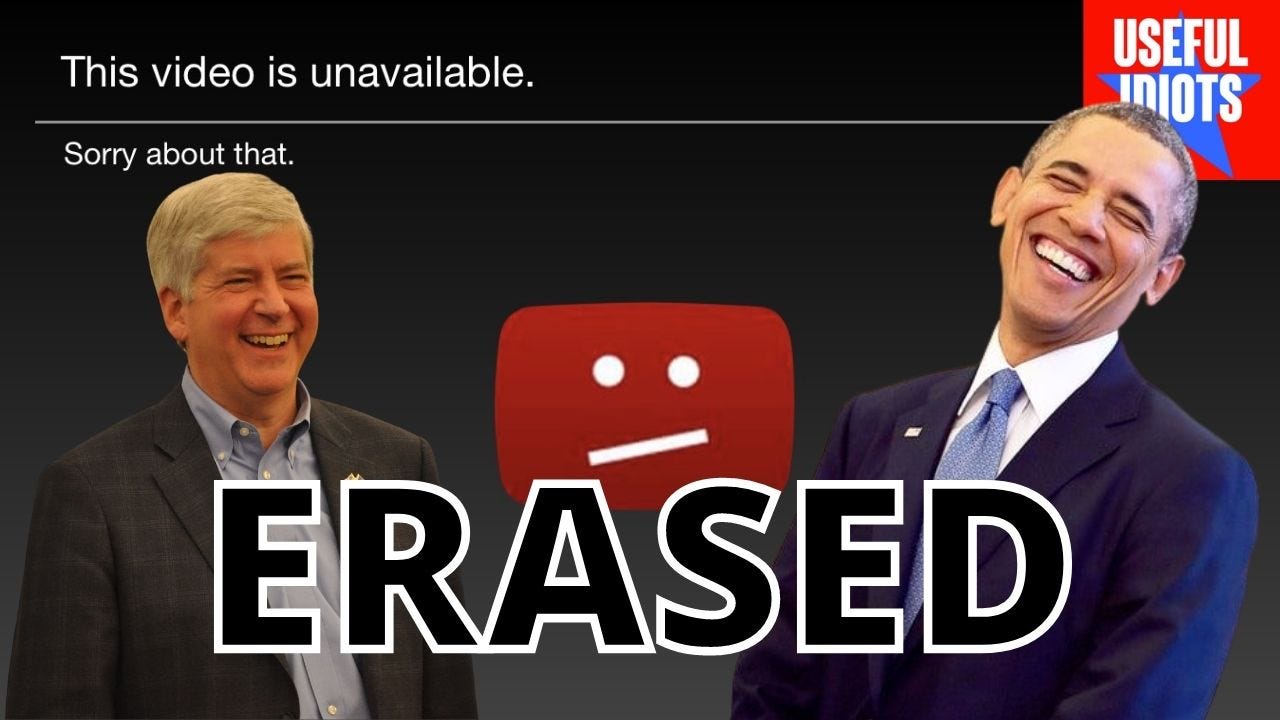"They Want To Erase History" How Youtube and the Mainstream are Blocking Out Indie Media
We continue our discussion on the Flint coverup and Youtube's control with the investigative reporters at Status Coup in this extended interview
The Flint Water Crisis seemingly had a perfect confluence of everything that doesn’t sell in media: it’s a bipartisan story, so it’s hard to make the other side look bad; it’s filled with complicated science; and it’s about poor Black people, which, in the eyes of corporate media, “doesn’t sell.” So no one wanted to waste the money on reporting it.
And on top of this, the too-powerful Mott Foundation which runs the city is trying to gentrify Flint, and if you’re trying to gentrify a city, a water crisis is bad for business. So, with the local media who still did choose to cover the story, the Mott Foundation gently shoved them away from it (re: too-powerful).
Now, the only ones left to cover this deadly story are independent media outlets (see, we told you we can be useful). Jordan Chariton and Jenn Dize at Status Coup have just published a landmark article on the case, but there’s still a problem: Youtube.
In the past year, Youtube has been taking down many of their (and other independent journalists’) videos, acting more like “a publisher than a platform.” Earlier this year, the Status Coup team was the first on the scene for the January 6 insurrection, filming live to Youtube as well as licensing the footage to corporate outlets like CNN.
However, Youtube removed the video from Status Coup’s channel with the reason that it “advanced claims of election fraud.” And yet, they had no problem with the same video on CNN’s channel, which remains up.
And now, Jordan and Jenn are hesitant to do live reporting at Proud Boys and Q-Anon rallies or crises like Flint in fear of losing their channel all together. They’re being silenced. Which means even independent media is having trouble reporting. Which means Governor Snyder and the Mott Foundation will keep winning.
So while we can still report on this, we will. It’s an important story of the silenced by the silenced, and hopefully it will be heard.
Plus, we have a bonus Republicans Suck which brings back the question: with everything sucking these days, is anything still funny?
It’s all this, and more, on this week’s subscriber-only episode of Useful Idiots. Watch here.




I have not been able to discover if interviews on UI come up in searches. Circumventing YouTube bans would require the search engines to be set up in a way that they pickup up content from Substack. ( I do not think they are). Topics may be discussed with intensity, but if they aren't part of the archive that search engines use they aren't found by the inquiring searcher. Search engines in general fail to pull up much but MSM on front pages. This is probably a topic for a different discussion but maybe someone who understands the platform integration and searches might respond. I remember when alternative newspapers had distribution stands next to the for pay newspapers but no other distribution means (not indexed in databases)--so the contents might have made an impact the day they were available, but rarely long-term.
My example:
I've been looking at what gets cited in Wikipedia about book history. Cited articles are those that are indexed in for-profit databases. Some excellent book history studies exist in unindexed author society newsletters, but these don't get cited in Wikipedia, so eventually they aren't part of "the history."
Same for Flint.
Is this video going to be available again?